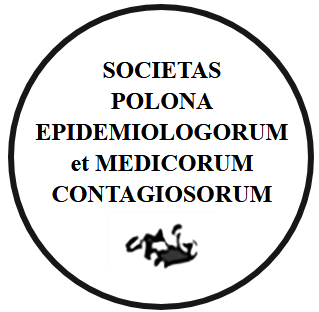RESEARCH PAPER
Personality traits, self-esteem, and stress-coping strategies in Individuals with obesity and insulin resistance: A pilot study
1
Instytut Psychologii, Uniwersytet Kardynała Stefana Wyszyńskiego w Warszawie
2
Instytut Psychologii, Zakład Psychologii Klinicznej, Uniwersytet Kardynała Stefana Wyszyńskiego w Warszawie
3
Katedra Diabetologii i Chorób Wewnętrznych, Instytut Nauk Medycznych, Collegium Medicum, Uniwersytet Kardynała Stefana Wyszyńskiego w Warszawie
Submission date: 2024-12-08
Final revision date: 2025-04-07
Acceptance date: 2025-05-02
Online publication date: 2025-05-07
Publication date: 2025-05-30
Corresponding author
Anita Beata Gębska-Kuczerowska
Instytut Psychologii, Zakład Psychologii Klinicznej, Uniwersytet Kardynała Stefana Wyszyńskiego w Warszawie, ul. Kazimierza Wóycickiego 1, 01-938 Warszawa
Instytut Psychologii, Zakład Psychologii Klinicznej, Uniwersytet Kardynała Stefana Wyszyńskiego w Warszawie, ul. Kazimierza Wóycickiego 1, 01-938 Warszawa
Przegl Epidemiol 2025;79(1):35-44
KEYWORDS
TOPICS
ABSTRACT
Background: Insulin resistance (IR), a key factor in type 2 diabetes and metabolic syndrome, also poses substantial psychosocial challenges when coexisting with obesity. Epidemiological trends indicate a rising prevalence of obesity worldwide, heightening the importance of understanding psychological dimensions such as personality traits, self-esteem, and coping strategies. Objective: This exploratory pilot study compared personality traits, self-esteem, and stress-coping strategies in women reporting a physician-confirmed IR with those in a control group, highlighting further implications for health promotion, education, and therapy. Material and methods: The pilot study involved 148 women aged 21-65 years (mean age 33.57 ± 8.74; BMI ≥ 25) who were recruited by social media. Of these 29 (19.6%) self-reported a physician-confirmed IR diagnosis, while 119 did not. Personality traits were assessed using the International Personality Item Pool-Big Five Markers-50 (IPIP-BFM-50), self-esteem with the Rosenberg Self-Esteem Scale (SES), and coping strategies with the COPE inventory (15 subscales). Descriptive statistics (M, SD, skewness, kurtosis) and the Mann-Whitney U test were used, justified by non-normal distributions and unequal group sizes. Results: Participants with self-declared IR demonstrated significantly lower Emotional Stability (p < 0.05). No other significant differences emerged in self-esteem or the remaining Big Five traits. Both groups frequently utilized adaptive coping (e.g., Planning, Active Coping), though self-declared IR participants trended toward emotion-focused strategies (not statistically significant). Conclusions: These findings suggest that lower Emotional Stability may impair effective stress adaptation in women with self-declared IR, underscoring the need to incorporate psychological interventions (e.g., emotional regulation training, psychoeducation) into standard IR and obesity management. Future research with larger samples and objective IR clinical markers is recommended.
We process personal data collected when visiting the website. The function of obtaining information about users and their behavior is carried out by voluntarily entered information in forms and saving cookies in end devices. Data, including cookies, are used to provide services, improve the user experience and to analyze the traffic in accordance with the Privacy policy. Data are also collected and processed by Google Analytics tool (more).
You can change cookies settings in your browser. Restricted use of cookies in the browser configuration may affect some functionalities of the website.
You can change cookies settings in your browser. Restricted use of cookies in the browser configuration may affect some functionalities of the website.





